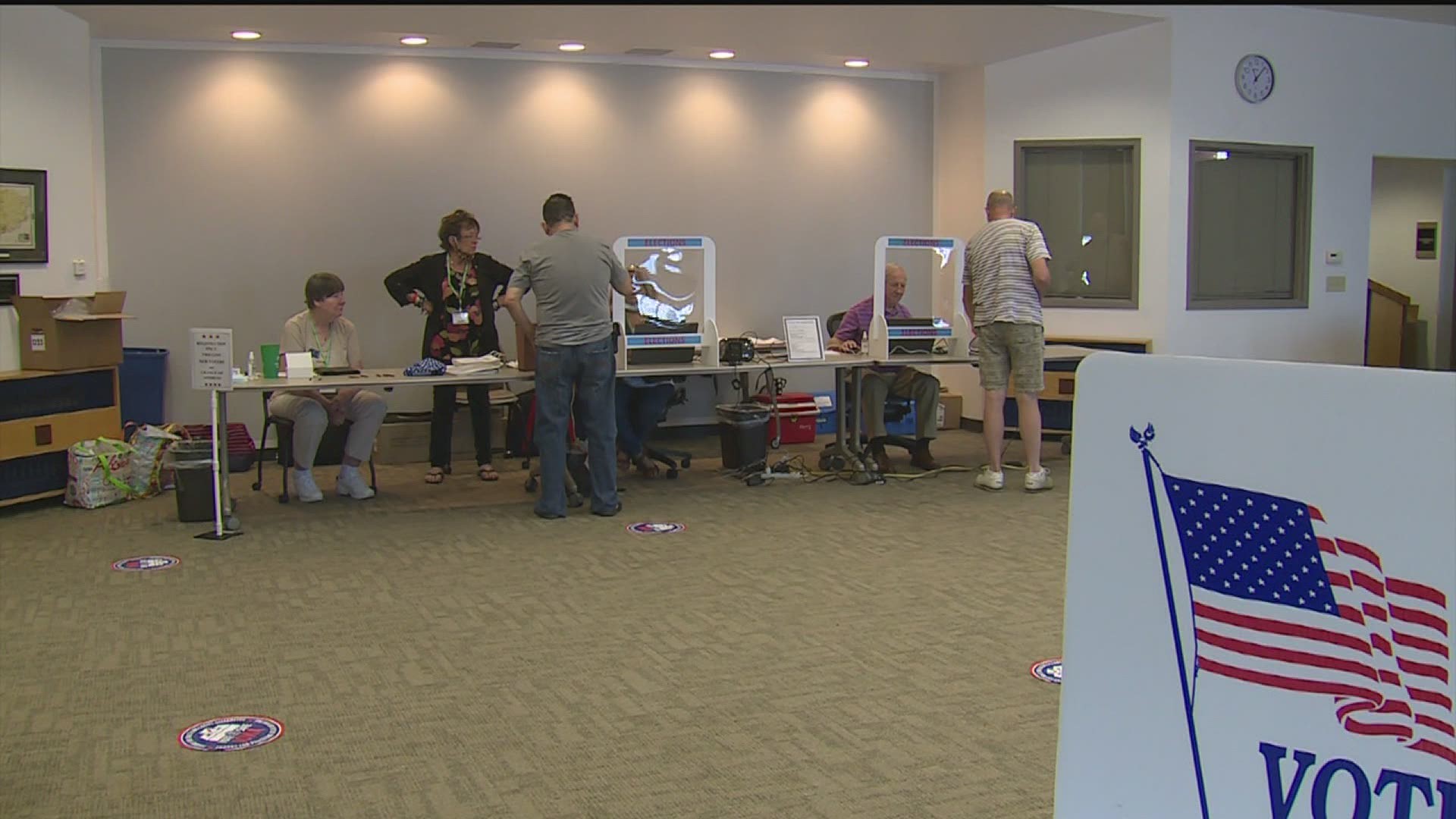DAVENPORT, Iowa — Iowa State Senator Roby Smith credited the success on primary night to collaboration among local election officials, and Secretary of State Paul Pate allowing consolidation of a polling location. His decision to issue absentee ballot request forms to every registered, active voter likely contributed to the surge in absentee voting.
The decisions helped alleviate crowds at the polls during the COVID-19 pandemic, Moritz said.
"The day of the election, we only had about 7100 people that came to the polls, so people I think they really understood that COVID was an issue. And for their safeguarding and the safeguarding of the community, and poll workers, they chose to do the right thing, and that was what secretary of state was trying to invoke: Stay safe, keep our communities safe, and vote from home."
The civil unrest added to uncertainties before the primary, she added: "We were not only hit with COVID, but we were also hit with civil unrest, so it was really really important that there was a process, and the preparedness that we went through, to make sure that people’s voices were here."
Senator Smith’s bill would prohibit the secretary of state from doing the same in the general election, should there be a second wave of COVID-19 cases.
Asked about the rationale for this provision, he responded via an email statement: "This legislation does not inhibit any voter from requesting and voting by absentee ballot. Iowans will still have all avenues to request an absentee ballot as they did in elections pre-COVID-19. In fact, registered voters have 120 days before any election to request a ballot. Request forms can be found on the Secretary of State’s website, at the county auditor’s office, or even by mail if a campaign, organization, political party, or county auditor decides to send them out. County auditors will continue to have the option to send to every registered voter in their county an absentee ballot request form."
Critics say this provision and others in the bill amount to voter suppression.
"The unintended consequence of making it harder for us as elected officials to do our job, that in turn makes it harder for the voter to vote," Moritz, a Democrat, said.
Moritz, who serves as president of the Iowa Association of County Auditors, says the majority of the organization's members, have come out against the bill.
Smith responded to the allegation of voter suppression: "This bill provides Iowans and candidates seeking elected office in this state the confidence to know the rules and to know those rules will not change for this upcoming election. HF 2486 does not curb voting, rather it does the opposite. More registered voters will be able to vote and legally cast ballots to have greater opportunity to be counted. Under my proposal, anybody being admitted to a hospital or a healthcare facility will have an extra week to vote. Also, under the current law, if you forget to sign your absentee ballot envelope the deadline is election night. My proposal would allow you an extra week following the election to come to the Auditors Office to sign and have your vote counted."
The bill made it out of a senate subcommittee late Friday night and could be voted on by the full Senate in the next few weeks.

